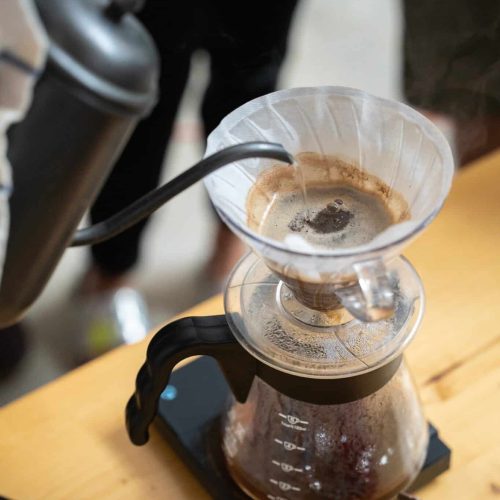Water is an important ingredient when it comes to making coffee. The quality of the water you use can have a significant impact on the flavor of your coffee. Ideally, you should use fresh, clean, cold water that has a balanced mineral content.
If your tap water has a strong taste or odor, you may want to consider using a water filter to remove impurities to improve the flavor of your coffee.
The mineral content is also important for the flavor of your coffee, and the “Speciality Coffee Association of America” recommends 150 parts per million (ppm). If your water is too hard (high mineral content), it can make your coffee taste bitter. If it’s too soft (low mineral content), it can make your coffee taste flat.
The water temperature for brewing can also have a significant impact. The water temperature depends on the brewing method and the type of coffee being brewed. In general, the optimal range for water temperature is between 90°C to 96°C (195°F to 205°F). This range is hot enough to extract the flavors from the coffee, but not so hot that it burns the grounds and creates a bitter taste.
For example, for drip coffee, the water temperature should be around 93°C (200°F) . For pour-over coffee, the water temperature should be slightly lower, around 90°C (195°F), to allow for a slower, more controlled extraction.
For espresso, the water temperature should be around 93°C to 96°C (200°F to 205°F). This high temperature is necessary to quickly extract the flavors from the finely ground coffee and create the characteristic “crema” on top of the espresso.
It’s important to note that water temperature can greatly impact the taste of the coffee. If the water is too hot, it can cause the coffee to taste burnt or bitter. If the water is too cold, it can result in a weak, under-extracted coffee.
